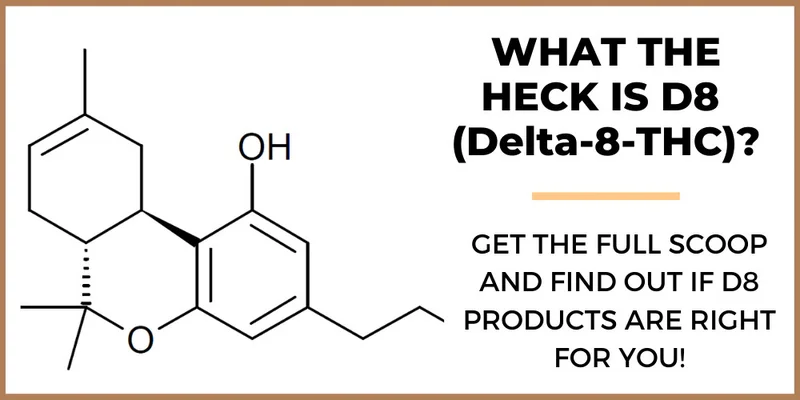
- February 11, 2021
- 0 comments
- 33 Views
From a molecular perspective, Delta-9-THC and Delta-8 aren’t all that different except for that a particular chemical bond appears on the eighth carbon — instead of the ninth. Delta-8 has a portion but not all of the psychoactivity as Delta-9, which is the majority opinion in the cannabis industry.
People often report that due to its reduced potency, Delta-8 provides them with a smoother, milder high that is less sedative and more functional than Delta-9. While the two share many similar properties, such as reportedly stimulating appetite, reducing nausea, and soothing pain, delta-8-THC tends to exhibit a lower psychotropic potency than delta-9-THC.
How does Delta-8 Work with the Endocannabinoid System?
Delta-8-THC binds to the CB1 receptors located in the central nervous system. Delta-8-THC additionally has an affinity for CB2 receptors, although less is known about this binding mechanism.
Comparing The Infamous Delta-9-THC to Delta-8
THC in general binds tightly to CB1 receptors, which are found primarily in the brain, but present throughout the body. Those receptors are part of the endocannabinoid system – a network of receptors and chemicals that influence a variety of experiences including, mood, pain sensation, or stress.
THC’s chemical structure is similar to that of anandamide, a chemical that allows the brain to send messages as part of the endocannabinoid system. That similarity allows it to bond tightly. The structure of Delta-8-THC is slightly altered, so it doesn’t appear to bind as well leading a reduction in intoxicating effects. Scientists estimate that Delta-8-THC is also about half to two-thirds as strong as delta-9.
Chemically, delta-9-THC is less stable than delta-8-THC. Delta-9 THC is easily oxidized to become cannabinol (CBN) or delta-8-THC. Delta-8-THC is stable, does not oxidize to become cannabinol, and boasts a prolonged shelf life. Such stability is desirable in a medicinal compound.
So What’s the Medical Potential?
A range of preclinical and clinical studies are uncovering some of the unique properties and therapeutic potential of delta-8-THC.
Inducing Appetite
Delta-8-THC may also help to stimulate the appetite. Research conducted on mice and published in a 2004 edition of “Pharmacology, Biochemistry and Behavior” found that a low dose of delta-8-THC administered to mice over 50 days resulted in a 22% increase in food intake compared with controls. The research also reported that delta-8-THC increased food intake significantly more than delta-9-THC.
Reducing Anxiety
According to the U.S. National Library of Medicine, Delta-8-THC seems to display anxiety-reducing qualities similar to delta-9-THC. While there is currently scarce clinical literature investigating its anti-anxiety potential, anecdotal reports claim that the consumption of delta-8-THC results in a very calm, focused high, without the anxiety that can sometimes accompany consumption of delta-9-THC products.
Pain and Anti-Inflammation
A 2018 preclinical study published in “Cannabis and Cannabinoid Research” found that delta-8-THC may help to diminish pain and inflammation in corneal injury in mice. The research found that delta-8-THC, applied topically, assisted in pain reduction, and reduced inflammation through its effects on the CB1 receptors. Another preclinical study on rats also reported that delta-8-THC delivers pain relief, but that tolerance to the cannabinoid developed rapidly.
Anti-Nausea
The nausea fighting potential of delta-8-THC was reported in a 1995 study published in “Life Sciences.” The study followed eight pediatric cancer patients over two years and found that no vomiting occurred when patients ingested delta-8-THC before and for 24 hours after cancer treatment. The study reported very few side effects.
Side Effects and Warnings
As a minor cannabinoid, there’s still a great deal that is unknown about delta-8-THC, which necessitates a cautious approach toward using it. Presently, the cannabinoid is generally available in concentrate forms, because most cannabis flower contains less than 1% delta-8-THC.
To acquire a substantial quantity of this cannabinoid, a significant amount of extraction and refinement must take place. While some delta-8-THC concentrates are isolates, other products may combine delta-8-THC with CBD and/or delta-9-THC for a more full-spectrum effect.
If you’re thinking about consuming delta-8-THC, it’s vital to be aware that a great deal of the current knowledge we have about the cannabinoid is based on animal studies. Research on animals has indicated that delta-8-THC (along with delta-9-THC) resulted in increased blood pressure by temporarily constricting the blood vessels. The rise in blood pressure was then followed by a drop in blood pressure and a slower heart rate. That being said, the effects observed in animals can be very different from the effects observed in humans, as evidenced in a 2018 systematic review published in “Pharmaceuticals.” For example, while delta-8-THC significantly slowed heart rate in animals, it conversely increased heart rate in humans.
The authors of the review concluded that there is limited data about the effects of delta-8-THC, and further studies need to be conducted in human populations to understand how it induces changes in blood flow.


